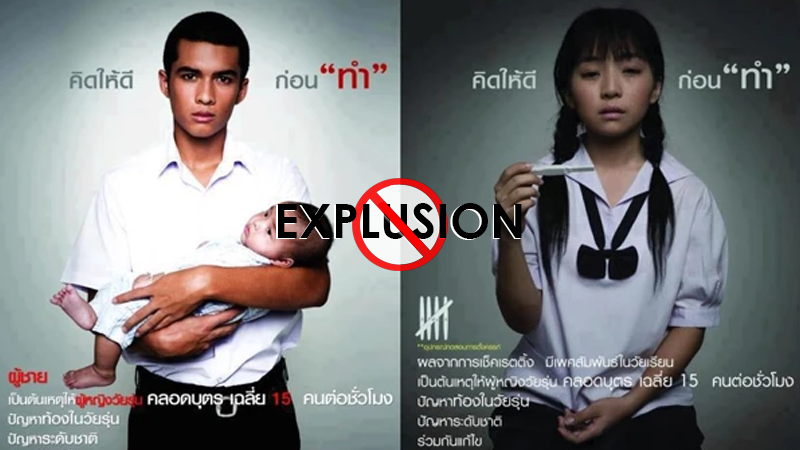Thailand’s Ministry of Education has issued new regulations banning schools from expelling pregnant students and requiring them to to provide adequate sex education suitable for each age group.
Private Education Commissioner Chalum Attam yesterday spoke about the revisions to the 2016 Prevention and Solution of Adolescent Pregnancy Problem Act (woof, that’s a mouthful) that was published in the Royal Gazette last Friday, on behalf of the Ministry of Education (MOE).
The new regulations — which will take effect 180 days from the announcement — will apply to primary schools, high schools, vocational schools and higher-education institutions.
Until now, it has been common for Thai schools to expel or suspend pregnant students from their studies.
Failure to comply with the new regulation will be considered a violation of the law, explained Chalum, per Khaosod, adding that the MOE is currently drafting a guideline to help institutions adopt the new regulations, which are being installed with an eye toward lowering the country’s teen pregnancy rate.
Beyond the dismissal ban, the revision now requires schools to establish a system that provides support and protects pregnant students in order to ensure their ability to continue their education.
Pregnant students are, by law, permitted to take breaks from school before and after childbirth, and institutions are required to adjust their classes to suit the student’s capabilities.
When necessary, schools are also responsible for arranging proper reproductive health services for students by putting them in contact with relevant government agencies or service providers.
The new sexual and life skill education requirements, meanwhile, require teaches to cover — in a compassionate manner — everything from relationships to sexual behavior to reproductive health.
The regulation also establishes a legal right for students to information about sexuality, reproduction, gender diversity and equality.
Constant follow-up and assessment of the new classes will be part of the overall scheme, as these revisions aim to lower the rate of teenage pregnancy in the nation.
Social media had predictably mixed reactions to the announcement.
“I’m glad to see the Ministry of Education take the first step towards solving the teen pregnancy issue since schools are play a vital role in a student’s unplanned pregnancy,” said one Twitter user.
“Won’t this encourage kids to have sex?” questioned another.
Many experts, however, including Rattapong Boonyanuwat, director of the Center for Human Capital Development at Kasem Bundit University, agrees with the new revisions, stating that he’s seen many students’ education stunted by unplanned pregnancies.




